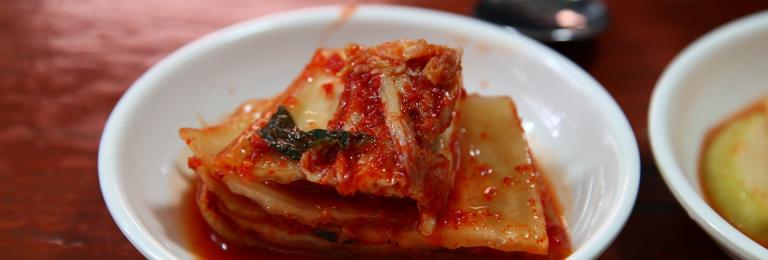Fermented Foods and Probiotics
Why do we need them?
Probiotics are bacteria that help keep the natural balance of organisms (microflora) in the intestines. The normal human digestive tract contains about 400 types of probiotic bacteria that promote a healthy digestive system and reduce the growth of harmful bacteria . The largest group of probiotic bacteria in the intestine is lactic acid bacteria, of which Lactobacillus acidophilus, found in yogurt with live cultures, is the best known.
It has been suggested that fermented foods and probiotics be used to treat problems in the stomach and intestines. But only certain types of bacteria or yeast (called strains) have been shown to work in the digestive tract. It still needs to be proved which probiotic bacteria work to treat diseases.
Many people use probiotics to prevent diarrhea, gas, and cramping caused by antibiotics. Antibiotics kill beneficial ("good" ) bacteria along with the bacteria that cause illness. A decrease in beneficial bacteria may lead to digestive problems. Consuming fermented foods and probiotics may help to replace the lost beneficial bacteria. This can help prevent diarrhea. Probiotics may also be used to help with other causes of diarrhea and help prevent infections and inflammation in the digestive tract.
Which foods are fermented?
- Yogurt and kefir. Yogurt and kefir (a yogurt-like drink) are made with lactic acid bacteria that break down the lactose sugar found in milk. These are a great source of protein and calcium and a good choice for children over 6 months who are also consuming iron-rich foods.
- Sourdough breads. Many bread products from cultures around the world, like Injera from Ethiopia, are made by fermenting grain rather than adding yeast for leavening (rising).
- Tempeh and miso. Tempeh originated in Indonesia and is a cake of fermented soybeans. Miso is a Japanese fermented soy paste used to make soups, sauces and as a condiment.
- Sauerkraut and kimchi. These are fermented cabbage condiments common to Eastern Europe and Korea, respectively. Kimchi is made with hot peppers and can be very spicy.
- Kombucha is a fermented tea that has become very popular. The caffeine and sugar content of many kombuchas are not rigorously tested and so are not recommended for children.
For more information
HealthLink BC has more information on probiotic bacteria: https://www.healthlinkbc.ca/health-topics/tw2302spec
Before giving a child a probiotic supplement consult your health care provider or call 8-1-1 toll free in BC and ask to speak with a registered dietitian at HealthLink BC.
